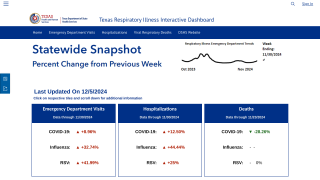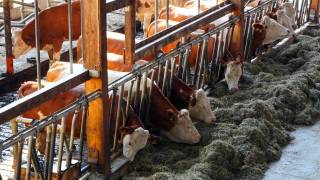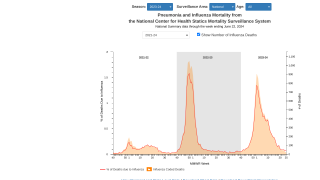Cell-Based and Adjuvanted Influenza Vaccines Deliver Measurable Benefits

Various flu shot benefit analyses are being presented during poster sessions in Boston, Massachusetts, this week. These data highlight the effectiveness and value of influenza vaccination across relevant age groups, risk profiles, and flu seasons with different levels of influenza burden.
An expansive analysis was announced today by CSL Seqirus, offering new data from three studies supporting the clinical, public health, and economic value of both cell-based and adjuvanted seasonal influenza vaccines.
“By analyzing healthcare and economic data, we can contribute to our understanding of improved vaccine effectiveness of specific influenza vaccines at the population level,” said Mendel Haag, Senior Director, Center of Outcomes Research & Epidemiology, CSL Seqirus, in a press release on October 11, 2023.
“Observing an ever-growing set of real-world outcomes is critical to ensuring that cell-based influenza vaccine technology continues to push public health forward.”
Modeling data showed a cell-based quadrivalent (IIV4c) vaccine provided substantial public health benefits compared with an egg-based quadrivalent inactivated influenza vaccine (IIV4).
It is estimated that use of IIV4c in U.S. people 0-64 years of age would have prevented nearly an additional 6.4 million illnesses, alongside a further reduction of over 3.1 million outpatient visits, 40,000 hospitalizations, and 8,000 ICU admissions and deaths during the 2017-2020 flu seasons.
In addition, modeling data comparing the economic and health impacts of vaccination with a cell-based quadrivalent influenza vaccine (QIVc) to the standard-dose egg-based quadrivalent vaccine (QIVe) in U.S. children six months to 17 years of age showed that vaccination with QIVc in both low- and high-incidence flu seasons would be a cost-saving strategy.
Predictive data suggests the societal cost impact of flu may be reduced by over $1.4 billion depending on the rate of incidence in a flu season.
A third study examined the impact of vaccination of older adults with adjuvanted quadrivalent influenza or standard-dose egg-based quadrivalent vaccine.
Results showed a significant reduction in cardiovascular, respiratory, and other complications of influenza among vaccinated adults 65 years of age and older during recent flu seasons.
“These studies strengthen the evidence base supporting the effectiveness of our cell-based and adjuvanted influenza vaccines in mitigating the consequences of influenza for health and healthcare systems,” added Joaquin Mould-Quevedo, Global Health Economic and Value Strategy Director, CSL Seqirus.
“With the 2023/24 Northern Hemisphere influenza season underway, we’re committed to working with our partners in public health to help demonstrate the importance of vaccination for our communities and health systems, particularly following a significant drop in flu immunization rates since the pandemic.”
As of late September 2023, over 110 million flu shots had been distributed in the U.S. by various pharmaceutical manufacturers for the 2023-2024 flu season, which has recently accelerated in southern states.
The U.S. CDC recommends that vaccination should ideally happen before the end of October for most people who need only one dose of flu vaccine.
Our Trust Standards: Medical Advisory Committee
























